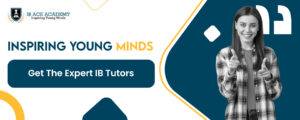Knowledge is pervasive, and there are various ways of seeking it. Along with IB subjects, the International Baccalaureate Organisation includes three core components, i.e., CAS (Creativity, Activity, and Service), EE (Extended Essay), and TOK (Theory of Knowledge). TOK in the IB Curriculum delves deeper into the realm of knowledge itself. It talks about different areas and ways of acquiring knowledge in order to gain insights into the dynamic world of knowledge.
What forms the basis of knowledge? To what extent are the claims of knowledge true? What is eternal? How do we know that we know? Such questions form part of this IB TOK course.
Fundamental concepts of the Theory of Knowledge (TOK)
What forms the basis of the Theory of Knowledge (TOK) course? The key concepts that form part of the discussion and exploration are as follows:
- Knowledge claims: From time immemorial, all sorts of discoveries and inventions took place; theories and counter-theories, etc., were formulated that form the basis of the world as we know it.
Whether what we know about our heliocentric universe is true or not? Are atoms at the heart of everything we see? Questions like these form the basis of this key concept. Under this, students are challenged to critically examine various knowledge claims and explore them in depth for justification. Students will either assent to or disapprove of particular knowledge claims.
- Areas of Knowledge: So many disciplines are known to us today. They are increasing with the increasing dynamism of the world. Artificial intelligence, for example, is a new area of knowledge developed over the past few years. Knowledge is organised into various disciplines, such as Mathematics, Physics, Languages, Biology, Astronomy, etc. Students are encouraged to explore how different areas of knowledge acquire knowledge, which will diversify students’ knowledge base and appreciation of all disciplines, as all disciplines are interconnected in one way or another.
- Ways of knowing: How do we know what we know? How do we gather the knowledge that is pervasive in our universe?
There are various ways of accumulating knowledge in various areas of knowledge. These include experiments, perception, intuition, logical and deductive reasoning, etc. TOK helps in understanding the diverse ways in which humanity acquires that knowledge. Knowledge can be obtained for individualistic purposes or to serve the entire human race. Students are encouraged to understand these ways of knowing so that they can appreciate the diversity of human cognition.
- Bias and Perspective: The diversity of the human mind will shape the way we acquire knowledge, even in the same area of knowledge. TOK emphasises the role of bias and perspective in shaping knowledge. It prompts students to recognise that our individual and shared perspectives influence how knowledge is acquired over time.
- Knowledge Questions: At the very core of IB TOK lie the knowledge questions. These are open-ended questions that encourage critical analysis and evaluation. It deals with the nature of knowledge, its limitations, and the dynamism of it in our natural and artificial worlds.
TOK Assessment Tasks
It is important to understand what IB assessment tasks are included in the TOK component and how these components are assessed.
This TOK course in the International Baccalaureate Diploma Programme includes two assessment tasks: the TOK essay and the TOK presentation.
- TOK Essay:
- Introduction: Under this, students are required to write an essay of a prescribed length in response to a prescribed title provided by the IB. These titles include broad and conceptual questions relating to knowledge, requiring exploration and deep analysis.
- Length: 1200 to 1600 words should be the requirement of an IB essay.
- How this component is assessed:
These four criteria are used to assess this particular component of the IB TOK essay:
- Understanding the knowledge issues in question
- Exploration and evaluation of knowledge issues
- Knowledge claims and counterclaims: quality of analysis
- Organisation of ideas
Each criterion carries 10 points.
Students are supposed to select one of the several prescribed titles that include various facets of knowledge.
- TOK Presentation:
- Introduction: The TOK presentation is an oral presentation where students are required to present their ideas with coherent and plausible arguments. They must engage their audience in a meaningful discussion about the topic they have chosen to articulate their ideas on. Students should relate their topic to real-life scenarios to make their presentation delectable and interesting.
- Length of the presentation: The presentation should be around 10 minutes long.
- How this component is assessed:
This IB TOK component is internally assessed and moderated by the external IB assessor. These four criteria are used to assess this particular component of the IB TOK presentation:
- Identification and understanding of knowledge issues
- Exploration and evaluation of knowledge issues
- Quality of arguments and corresponding evidence
- Organisation of Ideas
Each criterion carries 5 points.
- Real-Life Context: The presentation should connect their ideas and topics to a real-life situation, as this will help understand the practical applicability of all components of IB TOK.
- Rebuttals and discussions: After the presentation, students will respond to questions and engage in a meaningful discussion with the teacher and possibly other students by defending their arguments and ideas with plausible explanations. This discussion will last around 5 minutes.
These assessment components are designed to foster all-round development among students. They help improve critical thinking, presentation, writing, etc., which will be really helpful in the coming years.
Conclusion
A nuanced understanding of knowledge as a subject matter will help inculcate a lifelong appreciation of various disciplines and varied perspectives. With epistemological questions brimming at the edge of their growing minds, students can, well, understand the subtleties of life itself and how the understanding of these subtleties can help them in every facet of their lives.
Thus, the above essay will give you a basic understanding of this course so that you can streamline your journey with finesse and ease.


